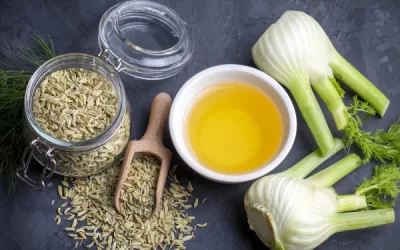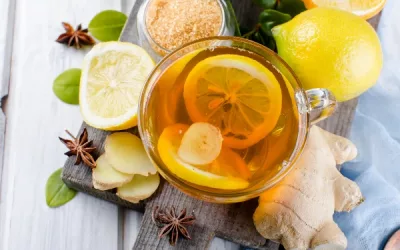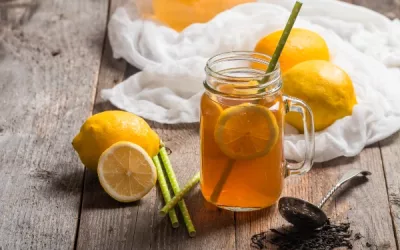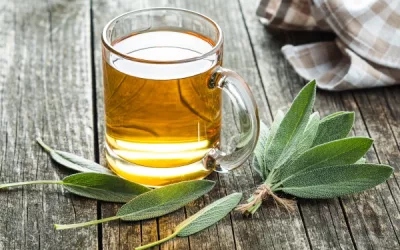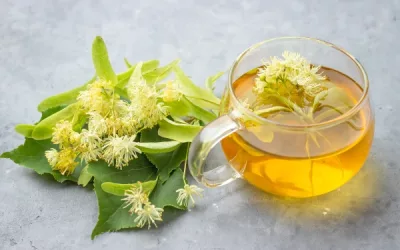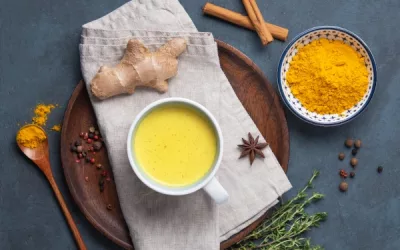Did you know that moringa tea is often dubbed the ‘miracle tree’ for its impressive health benefits? As more people embrace natural remedies, this humble herbal tea has gained notoriety for its potential to boost well-being. Understanding the benefits and risks associated with moringa tea is essential, especially for health-conscious individuals seeking alternative treatments. In this ultimate guide, we will explore the myriad advantages, nutritional profile, preparation methods, and precautions surrounding moringa tea, equipping you with the knowledge to make informed choices for your health.
Table of Content
What is moringa tea?
Moringa tea is a herbal tea made from the dried leaves of the Moringa oleifera tree, which is native to parts of Africa and Asia. The tree is often referred to as the “miracle tree” due to its nutritional and medicinal properties. Moringa tea is known for its potential health benefits and is consumed widely for these reasons.
Key aspects of Moringa tea:
- Rich in Nutrients: Moringa leaves contain vitamins A, C, and E, as well as minerals like calcium, potassium, and iron. They also have a high concentration of antioxidants.
- Antioxidant Properties: Moringa is rich in compounds such as quercetin and chlorogenic acid, which may help reduce inflammation and protect against oxidative stress.
- Supports Immunity: The tea is believed to boost the immune system due to its vitamin and antioxidant content.
- Potential Benefits: It may help with weight management, improve digestion, lower blood sugar levels, and support cardiovascular health.
- Caffeine-Free: Unlike green or black tea, moringa tea is naturally caffeine-free, making it a good choice for those looking to avoid caffeine.
Moringa tea can be prepared using loose leaves or tea bags, and it has a mild, earthy flavor that can be enhanced with honey or lemon.
How do I choose a high-quality moringa tea brand?
Navigating the sea of brands can feel like trying to find a needle in a haystack, a haystack made of green foliage. But don’t fret. Choosing a premium moringa tea brand doesn’t involve rocket science; it’s all about looking for the right cues.
- Organic certification: Go organic or go home! Organic labels ensure there are no harmful pesticides.
- Single-origin sourcing: This points to higher quality and ethical practices.
- Ingredient list: It should be short and sweet. Moringa leaves and maybe a bit of lemon or mint. That’s it.
- Aroma and colour: Vibrant green and a fresh, grassy aroma are tell-tale signs.
- User reviews: Real people, real talk. If they’re raving about the taste and quality, it’s likely worth your money.
Always check if the company is transparent about where they source their moringa and how they process it. High-quality brands often shout about their sustainable and ethical farming practices, so keep an eye out for those green flags.
Are there any specific certifications to look for when buying moringa tea?
Like picking a good melon, choosing moringa tea is all about spotting the signs. Certifications are those reassuring signs that you’re getting what you pay for, no funny business involved.
- USDA Organic: Guarantees no synthetic additives, pesticides, or fertilisers.
- Non-GMO Project Verified: Ensures the product doesn’t contain genetically modified organisms.
- Fair Trade Certified: Indicates ethical labour practices and fair wages.
- GLEAM (Global Leafy Extracts and Moringa): Specifically for moringa, ensuring quality and purity.
- ISO Certification: Indicates adherence to international standards for quality and safety.
Keep an eye out for these stamps of approval on the packaging. They’re like the Good Housekeeping Seal of Tea—a comforting pat on the back that you’re making a smart choice.
In the late 19th century, British explorers in India discovered the Moringa oleifera tree, a plant native to the sub-Himalayan regions. Known for its health-promoting properties, the locals used it as a remedy for various ailments.
The explorers were intrigued by its versatility and healing qualities and brought seeds back to Britain. Soon, moringa became a subject of interest among botanists and nutritionists, leading to further studies and cultivation in different parts of the world.
I remember my first encounter with moringa tea vividly. I was in a small village in southern India, visiting a friend. The locals raved about the “miracle tree” and its benefits. Curious, I decided to try it.
The taste was earthy and somewhat nutty, but what struck me most was the energy boost I felt. Over the weeks, I noticed improved digestion and better skin. Since then, moringa tea has become a staple in my daily routine, a testament to its incredible health benefits.

How do you prepare moringa tea?
Alright, health enthusiasts, listen up! You’re about to dive into the wonderful world of moringa tea preparation. This isn’t just about throwing some leaves into hot water and hoping for the best. There are nuances, methods, and little secrets that can transform your tea-drinking experience. Let’s break it down.
First, you’ve got options: fresh leaves, dried leaves, or even tea bags. Each brings something a bit different to the table. Fresh leaves give you that crisp, earthy taste. Dried leaves offer a more concentrated flavour. Tea bags? They’re the lazy person’s dream – and we all have those days.
Steeping time and temperature? Crucial. Too long, you might as well be chewing on a tree bark. Too short, it’s just greenish water – bleh! Finding that sweet spot is key. And yes, cold moringa tea is a thing, and it’s a delightful summer refreshment. Now, let’s answer those burning questions.
What is the best way to prepare moringa tea?
Prepare for an epic conflict of flavours and aromas! The best way to prepare moringa tea strikes a balance between ease and maximising flavour.
- Fresh leaves are the gold standard for purists. Rinse them, pop them in a pot, and pour over boiling water.
- Dried leaves are the next best thing. Use about a teaspoon of dried moringa leaves per cup, steeped in hot water around 93-95°C.
- Tea bags offer convenience while still providing a good taste. Just toss one in your cup and pour over boiling water.
Each method requires love and attention to avoid the dreaded bitterness or dullness.
How long should moringa tea be steeped?
Steeping too long is like leaving a romantic movie playing for the dog – pointless and a waste of time. The perfect steeping can transform your tea experience.
- For tea bags, go for 4-5 minutes. Longer than that, and it’s bitter city.
- Fresh leaves also love that 5-minute window.
- Dried leaves thrive around 4-6 minutes – it’s the sweet spot.
This timing allows the moringa to release its flavours and nutrients without overstepping into bitterness.
- Steep tea bags for 4-5 minutes.
- Fresh leaves should be steeped for 5 minutes.
- Dried leaves are best steeped for 4-6 minutes.
- Avoid steeping for too long to prevent bitterness.
- Use a timer to hit the sweet spot.
Steeping for the right length of time ensures your tea is aromatic, flavourful, and packed with all the good stuff moringa offers.
Can moringa tea be consumed cold?
Absolutely! Moringa tea cold? It’s like a slap of freshness on a hot day. You’ll thank me later.
Cold moringa tea can be made by:
- Brewing hot as usual, then letting it cool before refrigerating.
- Adding ice cubes to your hot tea for an instant chill.
- Brewing a stronger batch and diluting it with cold water.
- Adding lemon, mint, or a splash of honey for extra zing.
- Brew hot, then cool it down.
- Add ice cubes for a quick fix.
- Dilute strong brew with cold water.
- Enhance with lemon, mint, or honey.
- This chilled beverage is invigorating and keeps you cool while delivering the health benefits moringa is famous for.
So, let’s wrap this up with a little story. In ancient Egypt, Cleopatra reportedly sipped on some herbal concoctions to maintain her beauty and wellness. While she wasn’t chugging moringa specifically (let’s not rewrite history), the concept of herbal remedies for health is as old as time.
The royal indulgence in herbal teas shows that our quest for health through nature’s bounty has been around for centuries. So, lift your cup to Cleopatra and sip away, knowing you’re part of a long tradition.
What nutrients are found in moringa tea?
Moringa tea is packed with essential nutrients that provide a multitude of health benefits. This tea is derived from the leaves of the Moringa oleifera tree, which is often referred to as the “miracle tree” due to its rich nutritional content. Let’s explore the nutrients present in moringa tea and how they contribute to your well-being.
Understanding the Nutritional Table
Below is a table that breaks down the essential vitamins and minerals found in moringa tea. The first column lists each nutrient, the second column describes its health benefits, and the third column indicates the recommended daily intake. Use this table to understand how moringa tea can be a valuable addition to your diet.
| Nutrient | Health Benefit | Recommended Daily Intake |
|---|---|---|
| Vitamin A | Supports vision, immune function | 700-900 µg |
| Vitamin C | Boosts immune system, antioxidant properties | 75-90 mg |
| Calcium | Strengthens bones and teeth | 1000-1200 mg |
| Potassium | Regulates blood pressure, balances fluids | 2500-3000 mg |
| Iron | Essential for blood production | 8-18 mg |
| Magnesium | Supports muscle and nerve function | 310-420 mg |
| Protein | Builds and repairs tissues | 46-56 g |
Vitamin A
Vitamin A is essential for maintaining good vision and supporting immune function. Moringa tea contains a significant amount of this vitamin, which also contributes to skin health. Adding moringa tea to your daily routine can help you meet your vitamin A needs, especially if your diet lacks other sources like carrots and sweet potatoes.
Vitamin C
Moringa tea is rich in vitamin C, a nutrient known for its immune-boosting properties. This vitamin also acts as an antioxidant, protecting your cells from damage caused by free radicals. Drinking moringa tea regularly can help bolster your immune system, especially during flu season.
Calcium
Calcium is crucial for developing and maintaining strong bones and teeth. Moringa tea provides a natural source of calcium, making it an excellent addition to your diet if you’re looking to support bone health. This is particularly beneficial for those who are lactose intolerant and need alternative sources of calcium.
Potassium
Potassium helps regulate blood pressure and fluid balance within the body. Moringa tea contains potassium, which can aid in maintaining healthy blood pressure levels. If you’re someone who consumes a lot of sodium, incorporating moringa tea might help counteract some of its effects.
Iron
Iron is a vital component of haemoglobin, the protein that carries oxygen in your blood. Moringa tea provides a plant-based source of iron, which is beneficial for vegetarians and vegans who might struggle to get enough iron from their diets. This can help prevent conditions like anaemia.
Magnesium
Magnesium supports muscle and nerve function, and it’s involved in over 300 biochemical reactions in your body. Moringa tea contains magnesium, which can help alleviate muscle cramps and improve overall muscle function. This is especially useful for athletes and those with active lifestyles.
Protein
Protein is essential for building and repairing tissues. While moringa tea contains a modest amount of protein, it can still contribute to your daily intake. This is particularly beneficial for those on plant-based diets who need diverse protein sources.
During World War II, British soldiers stationed in India were introduced to moringa leaves to stave off malnutrition. They found that the leaves, when brewed into a tea, provided a significant boost in energy and overall health.
This historical context highlights the longstanding value of moringa as a nutritional powerhouse.
I remember the first time I tried moringa tea. I was sceptical about its benefits but decided to give it a shot after reading about its impressive nutritional profile. After incorporating it into my daily routine, I noticed a significant improvement in my energy levels and overall well-being.
It’s now a staple in my morning ritual, and I can’t imagine starting my day without it.
Are there any side effects of moringa tea?
Let’s dig into the million-pound question. Moringa tea, the green goddess of herbal beverages, has got everyone buzzing, but are there any side effects lurking in that tempting cup? Like every good thing, it’s not all rainbows and butterflies.
Let’s examine the potential risks and side effects, giving you the full scoop before you dive headfirst into the moringa madness.
Sure, moringa tea packs a nutritional punch. But before you poetically sip away, you should know that there are potential downers. Possible allergic reactions can jump out of nowhere, respiratory issues may crop up, and pre-existing medical conditions might get involved in this herbal tango.
Not to mention, if you’re playing around with a concoction of medications, moringa might decide to meddle or even start a brawl, affecting how these drugs work in your system.
What are the common side effects of moringa tea?
You’re probably asking, “What’s the worst that can happen?” and fair enough.
- Digestive issues: Picture your stomach throwing a tantrum. Too much moringa can lead to bloating, gas, or even diarrhoea.
- Allergic reactions: Sneezing, skin rashes, or more severe symptoms like difficulty breathing can happen if moringa tea and your system don’t see eye to eye.
- Altered blood sugar levels: If you’re diabetic or hypoglycemic, moringa’s tendency to lower blood sugar can be a nasty surprise without the right precautions.
- Heartburn: It’s not just the spicy curry that can cause this; moringa tea has been known to create that burning sensation too.
- Liver and kidney considerations: Overloading on moringa could lead to concerns relating to these hardworking organs.
It’s like meeting your hero and realising they have bad breath. The reality check is important.
How can moringa tea interact with medications?
Here’s where things get spicy. Mix moringa tea with certain medications, and you might end up with a surprise concoction that no one ordered.
- Blood pressure medication: Moringa can lower your blood pressure, which sounds great until it combines with your meds and plummets your pressure to the basement.
- Diabetes medication: Similar shenanigans with blood sugar levels dropping too low.
- Thyroid medications: Moringa has compounds that can meddle with how these drugs are absorbed.
- Anticoagulants: Blood thinners like warfarin may not appreciate the kick moringa adds to the mix.
- Heart disease meds: Medicines for cardiovascular conditions can also have a dodgy dance with moringa, causing unforeseen complications.
You wouldn’t let your friends fight at a party, so let’s keep your meds and moringa tea on civil terms.
Is moringa tea safe for pregnant women?
Now, if there’s one group we need to sugar-coat everything for, it’s the mums-to-be.
- Potential effects on the uterus: Moringa has been rumoured to cause contractions, a major no-no during pregnancy.
- Risk of miscarriage: Some animal studies suggest it could result in termination, and nobody wants to play that game.
- Nutrient overload: While nutrients are divine, too much of a good thing—like vitamin A—can be detrimental during pregnancy.
- Milk production: Post-birth, moringa is hailed for boosting lactation. But before the baby arrives, it’s a delicate balance.
- Consultation necessity: Always, always check with a healthcare provider before dabbling with moringa when expecting.
Life has its complications, so let’s not add more, especially when we’re talking about little munchkins.
Let’s jump back in time. The ancient Egyptians, who could rival any hipster’s love for the organic life, revered moringa for its healing properties. They used it for skincare, health benefits, and even as a symbol of longevity.
Cleopatra herself was rumoured to be a fan, likely integrating it into her famed beauty rituals. This historical nod isn’t just trivia; it’s proof that while moringa’s benefits were cherished, it was approached with respect—a lesson worth remembering as you sip wisely on your herbal brew.
How does moringa tea compare to other herbal teas?
Trying to figure out how moringa tea stacks up against other herbal teas? It’s like asking how a rock concert compares to a poetry reading—they’re both entertaining but in very different ways.
Let’s dive into the nitty-gritty of nutritional content, health benefits, taste profiles, and more.
First off, moringa tea is made from the leaves of the moringa tree, aka the “miracle tree.” It’s packed with vitamins, minerals, and antioxidants. You’ll feel like Popeye after drinking a cup!
On the other hand, you’ve got a smorgasbord of herbal teas like green tea, chamomile, and peppermint, each bringing its own pizzazz to the table.
Popular among nutrition enthusiasts, moringa tea is gaining recognition for its health benefits. From anti-inflammatory properties to aiding digestion, it’s pretty much the herbal equivalent of a Swiss Army knife.
But how does it really compare to your other go-to herbal drinks?
How does the nutritional content of moringa tea compare to green tea?
In terms of nutritional content, moringa tea is like the overachiever in high school—acing every class and joining every club.
- Protein Powerhouse: Moringa leaves contain more protein per serving than green tea. Who knew a leaf could be a protein shake?
- Vitamin C galore: Move aside, oranges! Moringa tea boasts a higher vitamin C content, promoting a robust immune system.
- Iron Clad: Moringa also contains more iron, making it stellar for those needing an iron boost.
- Antioxidant Rich: Both teas are packed with antioxidants, but moringa edges out green tea with a broader spectrum.
While green tea is famed for its catechins—nature’s wonder compounds—moringa brings a balanced nutritional profile to the table. So, if you’re sipping for overall health benefits, moringa might just have the upper hand.
What unique benefits does moringa tea offer over chamomile tea?
Comparing moringa tea to chamomile is like comparing a Swiss army knife to a soothing blanket—they each have their strengths but for different reasons.
- Energy Boost: While chamomile is great for winding down, moringa energises you without the jitters of caffeine.
- Digestive Aid: Chamomile soothes the stomach, but moringa takes it a step further with its high fibre content, helping in digestion and promoting regularity.
- Nutrient Dense: Chamomile is no slouch, but it doesn’t hold a candle to moringa’s vitamin and mineral load.
- Anti-Inflammatory Properties: Chamomile reduces minor inflammation, but moringa’s robust anti-inflammatory compounds provide more significant relief.
If you’re looking for a tea that not only relaxes but also kicks your nutritional intake up a notch, moringa might be your new best friend.
Is moringa tea a better option than peppermint tea for health?
Deciding whether moringa tea is better for your health than peppermint tea is like choosing between Batman and Superman; both bring unique strengths to the table.
- Nutrient-Packed: Peppermint may freshen your breath, but moringa comes with a plethora of vitamins and minerals.
- Energy vs Relaxation: Peppermint tea calms and aids sleep, whereas moringa can replace your morning coffee with a natural, non-caffeinated energy boost.
- Comprehensive Health Benefits: Moringa supports everything from vision to bone health, whereas peppermint is mostly focussed on digestive health and respiratory relief.
- Antioxidants Battle: While peppermint has its share of antioxidants, moringa’s variety and quantity make it a heavy hitter.
Your choice boils down to what you’re looking for: a revitalising nutrient boost or a calming, digestive aid.
Back in the day, Hippocrates, the father of medicine, recommended a diverse intake of herbs for maintaining good health. If he were around today, he’d probably advocate having both moringa and other herbal teas in your pantry.
Each has its place and benefits, and diversifying your tea portfolio might just be the key to unlocking optimal health. Balancing their unique attributes could be your best bet to staying fit and fabulous.
What are the precautions when consuming moringa tea?
So, you’ve jumped on the health bandwagon and decided to give moringa tea a whirl. Smart choice! But before you start guzzling it by the gallon, there are a few precautions you should consider to keep everything smooth sailing.
Let’s dive in and talk about what you need to know: recommended dosages, potential interactions with medications, keeping an eye out for any side effects, and the all-important chat with your healthcare professional.
What is the recommended dosage for moringa tea?
Listen, more isn’t always better, especially when it comes to moringa tea. Sure, it’s packed with nutrients, but you’re not Popeye with his spinach. Here’s what you need to know:
- Start small: Begin with one cup a day. Your body needs to get used to it.
- Gradually increase: If your stomach’s not flipping cartwheels, up it to two cups after a week.
- Don’t overdo it: Stick to around two to three cups daily. Overconsumption can lead to—brace yourself—liver and kidney issues.
- Follow package instructions: If your tea came with a package insert, follow those guidelines. Companies often do their homework on dosages.
Keeping these points in mind helps to ensure that you’re getting the benefits without the side effects. Always remember, balance is key!
Should I consult a doctor before trying moringa tea?
If you think consulting a doctor is overkill, think again. This isn’t just a polite suggestion, it’s smart living. Here’s why:
- Existing medical conditions: If you’ve got anything from diabetes to blood pressure issues, moringa could mess with your medications.
- Pregnancy and breastfeeding: If you’re one of the heroic souls growing or feeding a tiny human, play it safe.
- Drug interactions: Blood thinners, diabetes meds, and—surprise!—even thyroid hormone replacements can interact with moringa.
- Personalised advice: Your doctor knows your health history better than anyone. A quick chat can help you avoid unnecessary complications.
One little chat with your healthcare pro can save you a mountain of trouble. Trust me; it’s worth it.
How can I monitor my body’s reaction to moringa tea?
So, you’ve started sipping moringa tea. Now, how do you know if it’s shaking hands with your body or starting a brawl? Here’s your action plan:
- Keep a journal: Note down any changes, good or bad. This includes digestion, energy levels, and mood shifts.
- Watch for side effects: Headaches, nausea, or skin issues can mean moringa isn’t your new BFF.
- Pay attention to allergies: Rashes or breathing issues? Stop drinking the tea and talk to your doc.
- Regular check-ups: If you’re on meds, regular blood tests can show if moringa is interfering.
- Go slowly: Don’t increase dosage suddenly; your body needs time to adjust.
Keeping an eye on how you feel is crucial. After all, who knows your body better than you?
And while we’re on the topic of herbs, let’s time travel a bit. Around the 17th century, sailors in the British Royal Navy faced a major issue—the dreaded scurvy. Enter lemons and limes.
With no fancy vitamins around, Captain James Cook loaded up on citrus, solving the problem and saving lives. Moringa tea might not make you the next Captain Cook, but knowing the right precautions can steer your health journey in the right direction. Cheers to that!
Conclusion
As I reflect on the substantial benefits that moringa tea offers, it becomes increasingly evident how this remarkable herbal infusion can play a pivotal role in enhancing our health. We’ve explored a range of virtues, from its capacity to bolster heart health and regulate blood sugar to its rich nutritional profile loaded with essential vitamins and minerals.
We also examined the biochemical properties that lend moringa tea its strong antioxidant and anti-inflammatory effects, making it a compelling choice for those seeking holistic wellness and digestive support.
Understanding the implications of these findings is crucial. Moringa tea isn’t just another beverage; it’s a potential ally in our health journey. As we navigate the complexities of modern life—where chronic illnesses are rampant and dietary choices can compromise our health—moringa tea emerges as a natural supplement that may help mitigate some of these challenges.
However, I must also emphasise that with such potential comes responsibility. Awareness of possible side effects and drug interactions is essential for safe consumption.
For those intrigued by the benefits of moringa tea, a considered approach beckons. Beyond sipping this nutrient-rich tea, I encourage further exploration: perhaps experimenting with different preparation methods or sourcing high-quality tea that aligns with your health needs.
Also, being attentive to your body’s responses can offer invaluable insights into how this herbal infusion complements your wellness regimen.
In conclusion, I’m reminded of a quote by Hippocrates: “Let food be thy medicine and medicine be thy food.” Moringa tea embodies this philosophy, marrying tradition with health benefits for the modern world.
So, as you embark on your journey with moringa tea, I pose this thought-provoking question: How might integrating this humble yet powerful tea into your daily life transform your approach to health and wellness?
Resources
- Moringa oleifera and glycemic control: A review of current …
- A Review on the Antidiabetic Properties of Moringa oleifera Extracts …
- The effects of Moringa oleifera on blood glucose levels: A scoping …
- Effects of Moringa oleifera in patients with type 2 diabetes
- Moringa oleifera: A review on nutritive importance and its medicinal …
- Antioxidant activity and total phenolic content of Moringa oleifera …
- Nutritional and Antioxidant Properties of Moringa oleifera Leaves in Functional Foods
- Bioactive Components in Moringa Oleifera Leaves Protect against Chronic …
- Review of the Safety and Efficacy of Moringa oleifera


